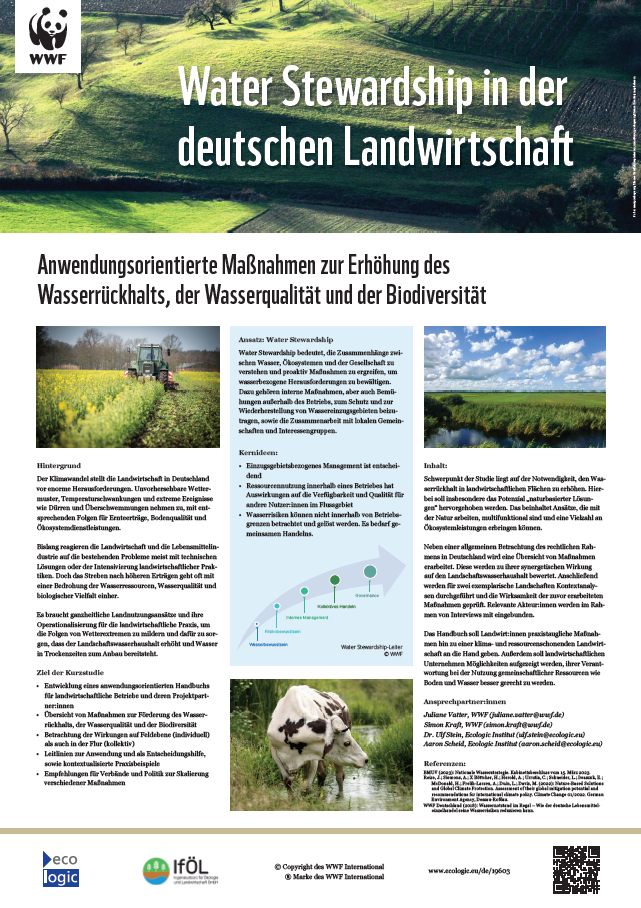Elsemargriet from Pixabay
German agriculture is facing major challenges. Extreme events such as droughts and floods as well as shifts in the temperature regime have a significant impact on soil quality, crop yields, and overall agricultural productivity. The pursuit of higher yields often comes at the expense of fundamental ecological functions, leading to water scarcity, deteriorating water quality and increasing biodiversity loss. Adaptive strategies are needed to mitigate the effects of climate change and promote increased water retention in agricultural landscapes.
On behalf of the Panda Fördergesellschaft, representing the World Wide Fund for Nature (WWF) Germany, Ecologic Institute will develop a handbook under the project title "Water Stewardship in German Agriculture", which entails practice-orientated measures to increase water retention, water quality and biodiversity in German agriculture.
The development of an application-oriented handbook will enable farmers and other stakeholders to select and implement measures with regard to water retention, water quality and site-specific biodiversity at both individual and collective farm level. It also aims to raise awareness to the topic of water stewardship and the need to apply measures.
Content of the handbook
In addition to an introduction to the current water-related situation in Germany and an initial overview of the legal framework, the handbook will also include specific practical examples. Two example regions will be used to contextualise relevant measures and, finally, possible levers (political, financial, etc.) will be discussed in order to achieve an upscaling of nature-based solutions.





